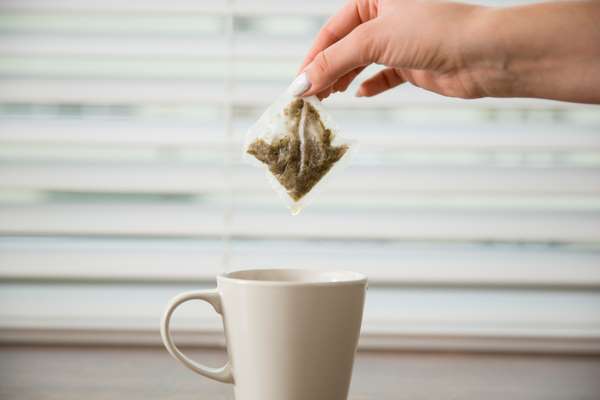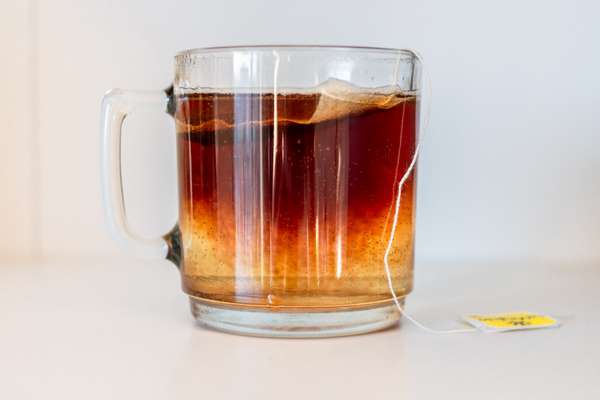Why you should be concerned about tea bags
Recent scientific research shows that popular tea bags can release billions of tiny plastic fragments into the drink during brewing. This is worrying because previous experiments have already shown that cells in the human body can absorb microplastics. Although the full impact of this phenomenon on health is still being studied, the fact remains that we come into contact with large amounts of synthetic materials on a daily basis.

Key findings from the latest study
In November 2024, the journal Chemosphere published the results of an experiment that studied the composition of different types of tea bags. The researchers tested:
- Polypropylene bags (the most common plastic material)
- Paper (cellulose) sacks
- Nylon mesh bags
Key findings.
- Polypropylene bags released more than 1 billion plastic particles per millilitre when brewed.
- Paper (cellulose) bags released approximately 135 million plastic particles per millilitre.
- Nylon mesh bags added about 8 million plastic fragments per millilitre of drink.
The study authors also tested how these tiny particles interact with human gut cells. It turned out that microplastics can accumulate inside cells, including moving into the nucleus (where DNA is stored). This indicates that it can linger in the body after consumption.
Why it can be dangerous
Medicine does not yet have a definitive answer about the negative health effects of microplastics, but we already know that:
- Some additives used in the production of plastics can have carcinogenic or hormone-disrupting effects.
- Microplastics can enter the bloodstream and be carried to various organs, potentially causing inflammation and other negative reactions.
According to the scientists, we need more research to study the impact of microplastic particles on the human body in more detail. However, it is worth reducing contact with such materials, especially in cases where there are simple alternatives.

How to reduce the risk and not give up your favourite tea
- Choose loose leaf tea
- Use a stainless steel teapot or a reusable filter. This way you avoid plastic or nylon bags.
- Don’t be fooled by “biodegradable” bags
- Materials marketed as “eco-friendly” (e.g. polylactic acid) can also break down into plastic nanoparticles that are difficult to detect and filter out.
- Replace plastic containers
- Store food in glass or steel containers and avoid plastic water bottles.
- Minimise the use of single-use plastic
- Even if it is biodegradable, the very structure of the material can break down into micro-particles.
Conclusion.
Research into the health impacts of microplastics is still in its infancy, but the results are worrying – especially when it comes to everyday products like tea bags. If you don’t want to give up tea, consider switching to alternative brewing methods and reducing your exposure to plastic in your daily life. This can be one of the most important steps you can take to protect your health and the environment.






